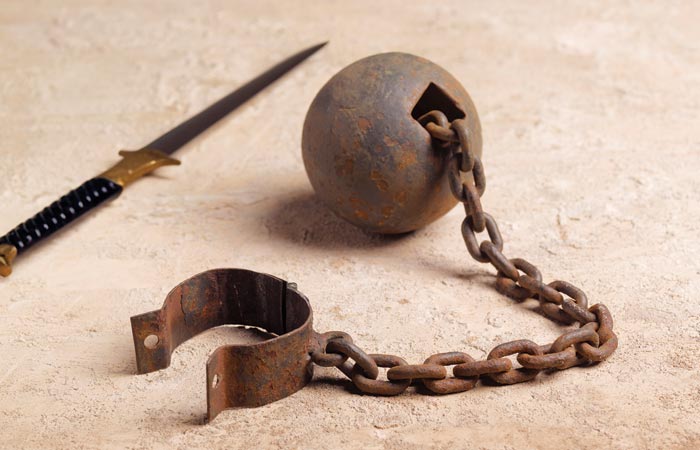“You know how when you’re at a seder, you talk about freedom and slavery and so forth? The conversation was about the Holocaust and how Jews would go to Canada or Mexico or Argentina. And this couple sitting next to me said, ‘Oh, we went to Tokyo.’”
It was at that moment at a friend’s Passover seder in the 1980s, Howard Teichman recalled, that his idea for a play was born. The play, called “Fugu” — about the Japanese plan to offer sanctuary to European Jews during World War II and the bizarre rationale behind that campaign — will be presented Jan. 28 to March 19 by the West Coast Jewish Theatre, where Teichman is the artistic director.
“I did some research and then I realized, my goodness, there’s this story about how Lithuanian Jews were given exit visas so they could come to Japan — and all of a sudden there’s this Fugu Plan. And I became so totally enamored with the story. It just kind of blew me away,” said Teichman, the play’s director and co-writer with Steven G. Simon.
While the couple at the seder had been able to stay in Tokyo posing as Nazis, Teichman learned that other Jews were allowed to settle openly in such cities as Kobe, where the play is set.
The Japanese admiration and friendly feeling for the Jews was solidified during the Russo-Japanese War (1904-05), when wealthy Jewish banker Jacob Schiff helped the Japanese prevail by extending them a multimillion-dollar loan.
Then, in 1922, Japan sided with Soviets who made up the White Army in its war against the Communists. The notoriously anti-Semitic Soviets introduced Japanese Col. Norihiro Yasue (a character in the show played by Ryan Moriarty) to the infamous “Protocols of the Jewish Elders” (also known as “The Protocols of the Elders of Zion”), a fabricated document purporting to be the minutes of a meeting during which prominent Jewish figures formulated plans to take control of the world’s economies, governments and media. However, while the fake document was used to justify anti-Jewish oppression around the world, it prompted the Japanese to admire what they believed was the Jews’ wealth and influence, which they hoped could be used to help advocate for Japan in the United States. Yasue even traveled to what was then Palestine in the 1920s, meeting with Chaim Weizmann and David Ben-Gurion, and later got his foreign ministry interested in the Fugu Plan.
“According to the plan,” Teichman explained, “the Japanese wanted one Jewish man to go to America because they believed [President Franklin D.] Roosevelt was Jewish, and they felt that if they could show Roosevelt that they were being good to the Jews, he would lift the oil embargo that was placed on Japan in 1935 — because Japan had attacked China, and China was an ally of ours. If they showed they were nice to the Jews, somehow that would translate into not going to war. That would translate into, hopefully, getting Jewish-American money to Japan to help the Jews who were in Japan.”
As the play begins, leaders of the Jewish community in Kobe, including Rabbi Shlomo Shapira (Peter Altschuler) and Dr. Avram Kaufman (Warren Davis) — in real life, Dr. Abraham Josevich Kaufman — invite Yasue to Shabbat dinner. Yasue decides the dinner should take place at his home and be overseen by his aide, Setsuzo Kotsuji (Scott Keiji Takeda), who has learned about Judaism and studied Hebrew in Palestine. Also present is another member of the Jewish community, along with Kaufman’s daughter (Rosie Moss) and Captain Matsuoko (Marcel Licera), a fervent Japanese nationalist.
During the dinner, the Japanese pressure their guests to participate in the Fugu Plan or end up in a concentration camp. Although he is bewildered by the idea and knows he has little chance of success, Kaufman agrees to be Japan’s emissary to the United States.
In the play, the three main Japanese characters and the leaders of the Jewish community are all based on historical figures, Teichman said, but the Shabbat dinner is a dramatic invention to further the story line, as is the character of Kaufman’s daughter and a fictional love story between her and Kotsuji.
“We decided that, during our process of writing this play, we wanted to create a sense of urgency,” he said. “And the way we did it was to have everything happen in one day. … And so, the Shabbat dinner was a way of introducing the Fugu Plan to the audience.
“That’s why we set it the way we did. That’s why we took dramatic license the way we did, because the story is a long story. It takes up time and time. We tried to synthesize the story so it could be theatrical.”
Into the mix comes Gestapo officer Col. Josef Meisinger (David Preston), known as “the Butcher of Warsaw,” making an unexpected appearance. His entrance effectively puts an end to the Fugu Plan and poses a dire threat to the Jews. “Josef Meisinger was a real person who had come to Japan to ask the Japanese to kill the Jews,” Teichman said. “And the words that we wrote came from his transcripts.”
But the Japanese, who occupied Shanghai, refused to kill the Jews, opting instead to create a ghetto for them in that city. “Go to YouTube and see these people from Steven Spielberg’s ‘Shoah’ who speak about their time in Shanghai,” Teichman suggested. “These people talk about it being difficult. They didn’t have all the amenities, all the food, but they look back on it as a time when they survived. They were living in conditions that were better than being in a concentration camp. They were able to come and go. They had newspapers. They may not have had fancy clothes and all the amenities, but they were able to survive. And to me, that’s the real story — that these people survive.”






















 More news and opinions than at a Shabbat dinner, right in your inbox.
More news and opinions than at a Shabbat dinner, right in your inbox.